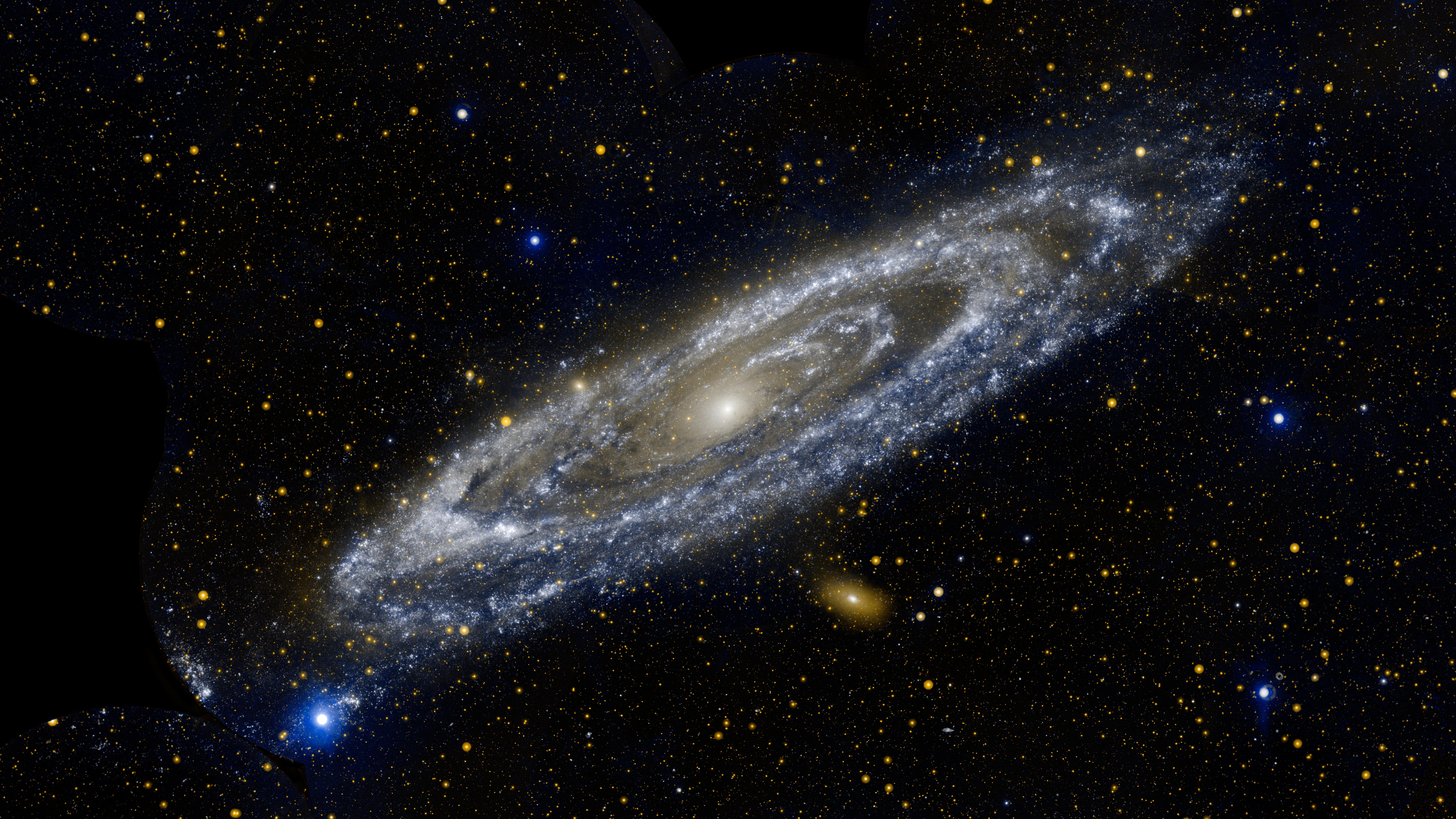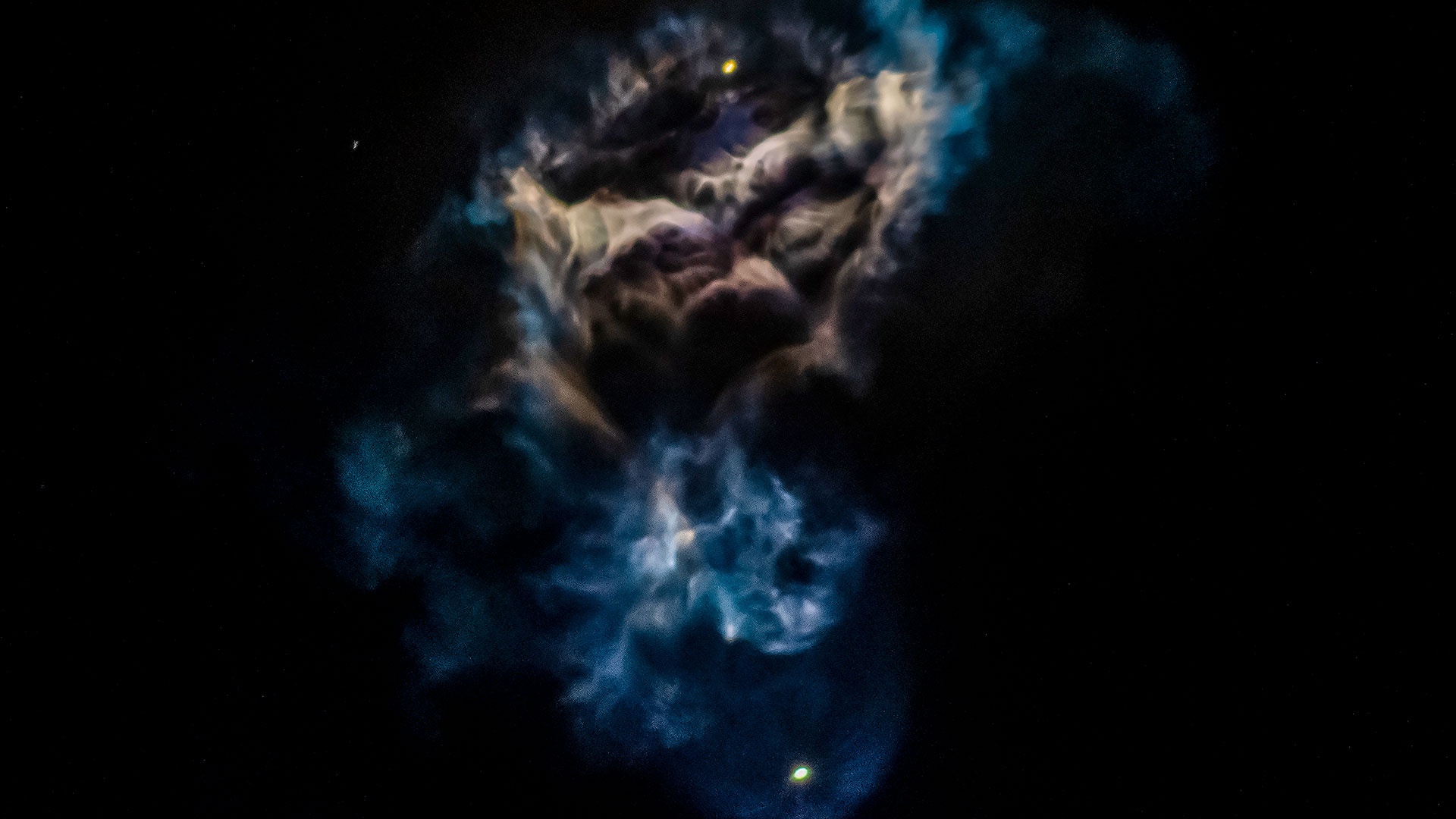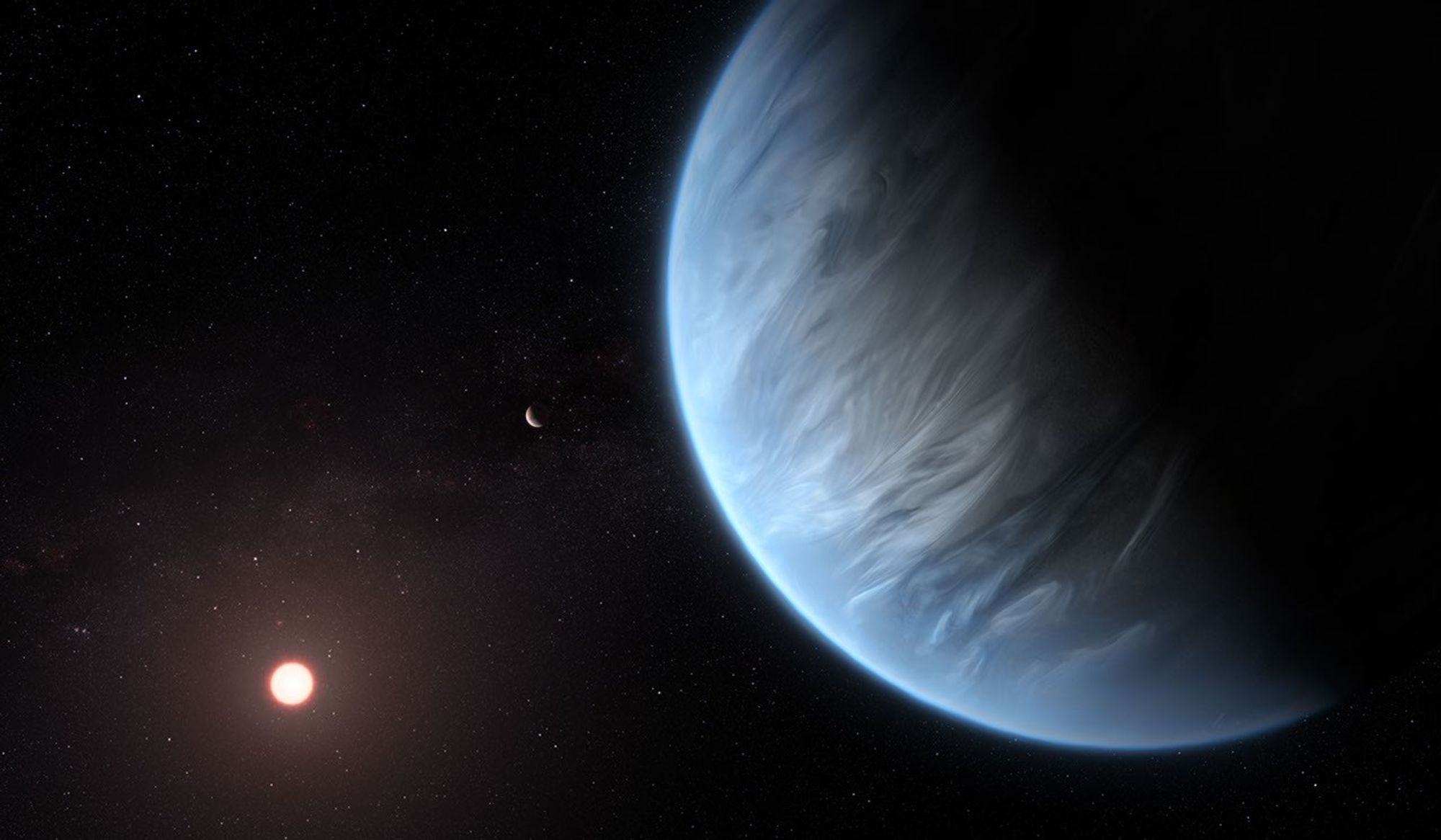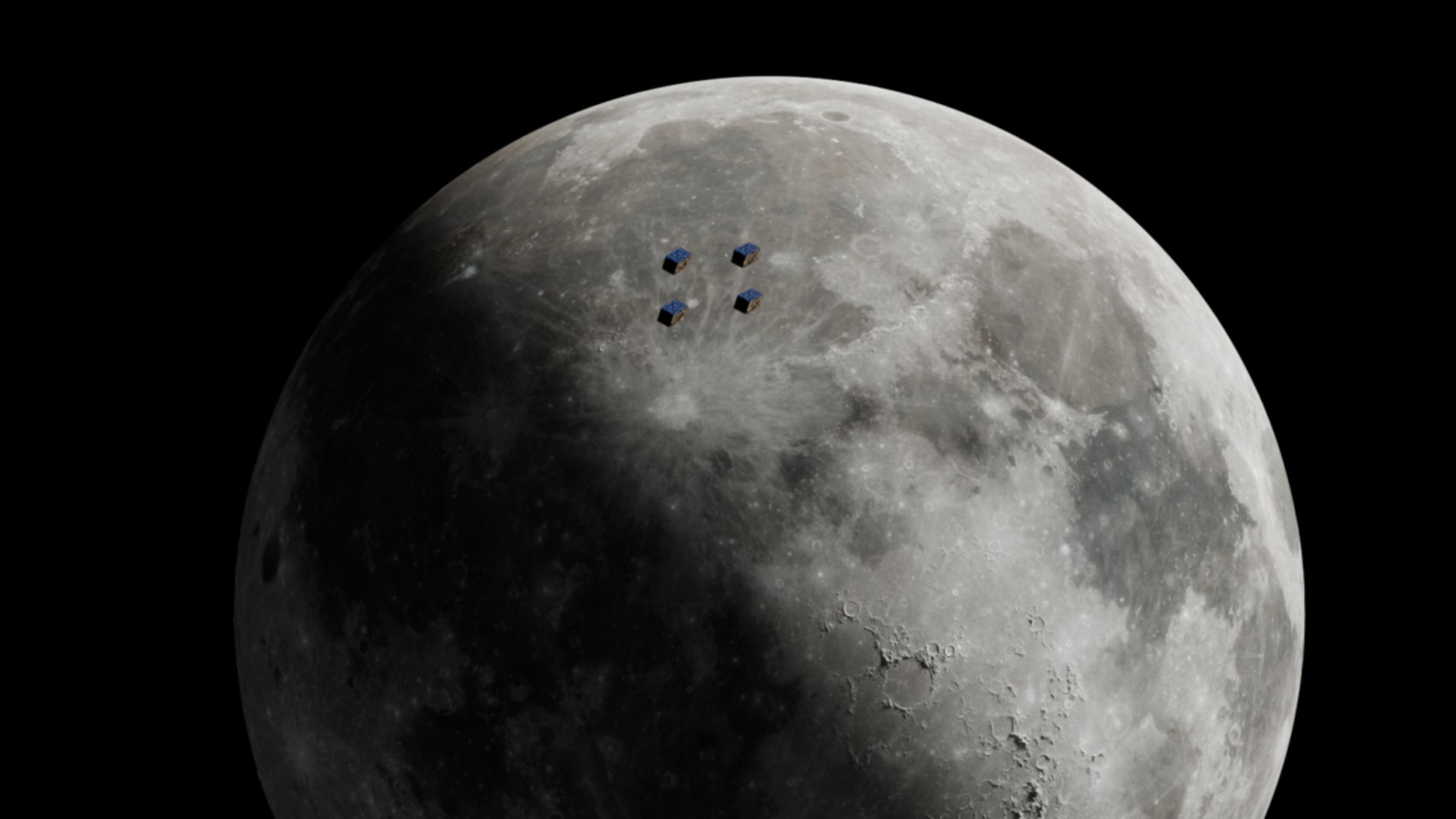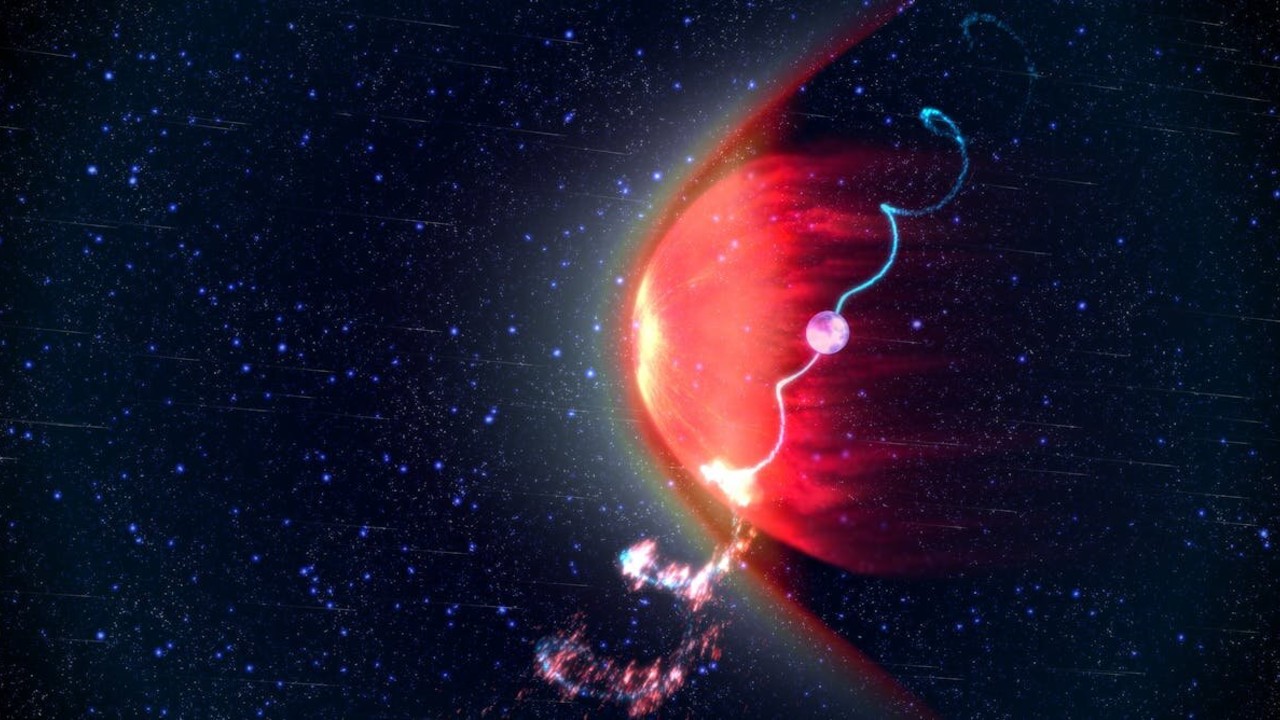Planet Unwinds in 'Death March'
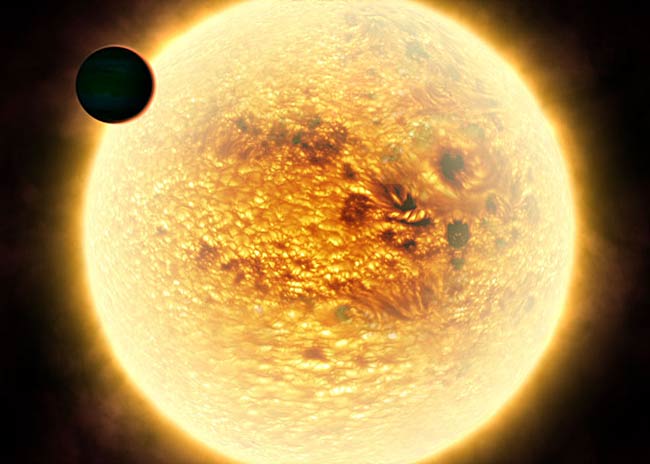
Thegravity of an alien star is causing its planet to unwind, research now reveals.
Theworld in question is WASP-12b,the only known planet circling the yellow sun-like star WASP-12 some 867 light-yearsfrom Earth. This gas giant is so close to its host star that it takes just 26hours to orbit it and complete a year.
Unsurprisingly,given its closeness to its star, WASP-12b isscorching hot. At some 4,000 degrees F (2,200 degrees C), it's nearly halfas hot as the surface of our sun.
Strangely,WASP-12b, which is roughly 1.4 times Jupiter's mass, is unexpectedly largecompared with most gasgiants of similar mass and distance from their stars. Its diameter is some3.6 times Jupiter's.
Nowscientists find the heat from the star is not enough to explain the planet'sinflated size. Instead, the gravity of the star appears responsible.
OnEarth, the moon'sgravity causes tides. On WASP-12b, the tidal forces due to its star are fargreater, and the energy is dissipated in the planet in the form of heat.
"Whereas tidal force on the Earth leads to a few meterchanges in the height of the ocean surface, that on WASP-12b is 10 milliontimes larger,"said researcher Shu-lin Li, an astrophysicist at Peking University in Beijing.
Get the Space.com Newsletter
Breaking space news, the latest updates on rocket launches, skywatching events and more!
Infact, WASP-12b is getting inflated so much that its atmosphere is escaping,losing an amount roughly equal to a thousandth of our moon's mass every year.
"We are witnessing the ongoing disruption and death march ofa planet," Li said.
Theresearchers predict this gas is flowing toward the host star, forming a tenuousdisk that should emit heat detectable by the Hubble or Spitzer SpaceTelescopes. They also calculate that an as-yet unseen planet roughly 5 to 10times Earth's mass — a "super-Earth" — might be influencingWASP-12b's orbit.
Thescientists detailed their findings in the February 25 issue of the journal Nature.
- Gallery- The Strangest Alien Planets
- OutThere: A Strange Zoo of Other Worlds
- Top10 Extreme Planet Facts
Join our Space Forums to keep talking space on the latest missions, night sky and more! And if you have a news tip, correction or comment, let us know at: community@space.com.

Charles Q. Choi is a contributing writer for Space.com and Live Science. He covers all things human origins and astronomy as well as physics, animals and general science topics. Charles has a Master of Arts degree from the University of Missouri-Columbia, School of Journalism and a Bachelor of Arts degree from the University of South Florida. Charles has visited every continent on Earth, drinking rancid yak butter tea in Lhasa, snorkeling with sea lions in the Galapagos and even climbing an iceberg in Antarctica. Visit him at http://www.sciwriter.us
